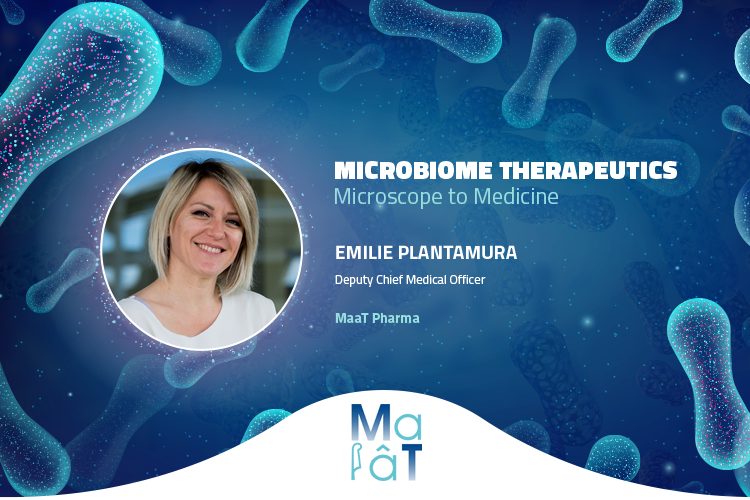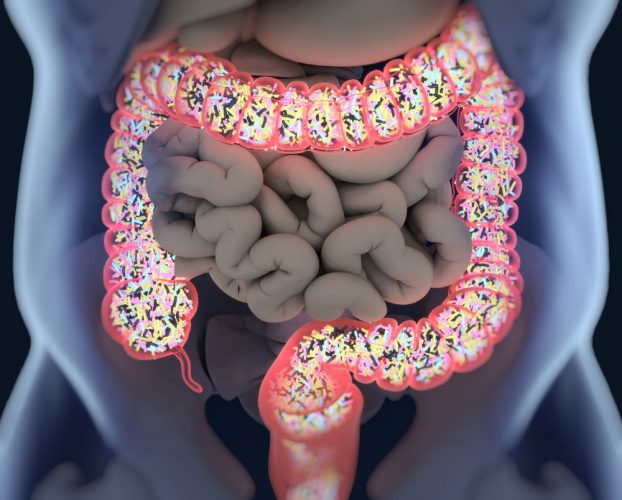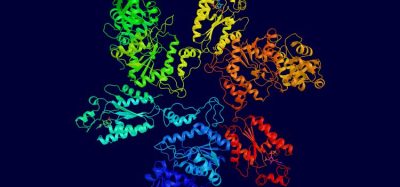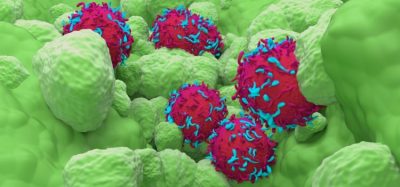Advancing microbiome innovation
Posted: 10 April 2024 | Emilie Plantamura (MaaT Pharma) | No comments yet
In the fourth instalment of EPR‘s ‘Microbiome therapeutics: microscope to medicine’ series, Emilie Plantamura, Deputy Chief Medical Officer at MaaT Pharma, examines the promising potential of microbiome therapeutics beyond Clostridium difficile infection, particularly in the onco-haematological field.


Over the past decade, there has been an increase in discussions involving industry stakeholders, regulatory agencies, and physicians about developments in the emerging microbiome therapeutics industry. The field initially triggered inquiries and these conversations have since evolved, indicating a noticeable positive shift in attitudes over time.
The recent FDA approvals of two microbiome products in the US, in November 2022 and April 2023,1-2 represent a significant milestone, maturing the industry and paving the way for advancement and regulatory clearance of additional microbiome products in broader indications.
Considering these developments, there is now strong recognition of the potential benefits offered by microbiome treatments.
Deviation from traditional approaches
Microbiome therapeutic development differs from traditional chemical agents, involving the use of live organisms and complex communities of micro-organisms. This unique mode of action offers potential with proven efficacy, however, given its complexity, also requires an updated approach for overall risk management.
Engaging in continuous dialogue with regulatory bodies in Europe and the US helps in designing clinical trials that follow the latest safety standards and international regulations. When it comes to working in this sector and using microbiota as a therapeutic approach, it is important to see a patient with a holistic viewpoint and to improve the overall well-being and outcomes for that person, rather than just providing a treatment.


During the development of clinical trials that use faecal-derived material, the necessity of safety is paramount. Implementing stringent specifications, not only guarantees the safety of the product but also ensures reproducible quality and efficacy.
For example, before stool is collected, donors are screened, taking various samples of blood and faecal matter to check for several harmful bacteria, including multi-resistant bacterium or pathogenic bacterium. These methods also acknowledge the necessity of adapting to external environmental changes, as evidenced by successful adjustment in screening for COVID-19 after the pandemic started.
When collecting stool, experts will also consider the amount of microorganisms present, and their potential variety and diversity, to understand the overall health and function of the individual donor’s microbiome.
Pooling as a promising “next generation” solution
Each gut microbiome is intricate and unique, shaped by the diverse compositions of microorganisms and the inherent individuality within each microbiome. Notably, from one donor to another, significant variations exist. While this approach has shown to be safe and efficient in Clostridium difficile, the variability between donors may lead to random outcomes and responses in patients for immune-mediated diseases. Therefore, understanding and addressing the complexities of individual gut microbiomes are crucial for ensuring the safety and reliability of microbiome-based therapeutics.
Thus, MaaT Pharma has developed and patented a technology for a pooling process, which is recognised as a strategic solution for addressing the diverse variations in gut microbiomes across different donors. Research indicates that combining faecal-derived material from multiple donors, for example four to eight donors, rather than just one, allows it to reach a plateau of a more diverse product, providing the full menu of microorganisms needed by the patient.3 Pooling also holds the potential to i) standardise the product composition, with a significant reduction of variance within manufactured pooled products, and ii) effectively restore microbiome homeostasis in life-threatening indications such as graft-versus-host disease (GvHD), a severe complication following haematopoietic stem cell transplant in the treatment of blood cancers.
Advancing microbiome innovation
The future of microbiome therapy will be marked by the developments of new treatments across a multitude of disease areas beyond C. difficile infection, especially in oncology”
The future of microbiome therapeutics will be marked by the developments of new treatments across a multitude of disease areas beyond C. difficile infection, especially in oncology. For example, numerous publications have highlighted the role of the gut microbiome in improving the efficacy and diminishing the toxicity of chemotherapeutic drugs.4
Notably, microbiome therapies have strong potential in onco-haematology, where antibiotic and chemotherapy-derived loss of gut diversity is predictive of mortality in patients who have undergone an allogeneic haematopoietic stem cell transplant, as well as GvHD occurrence and infection.5 Therefore, using microbiome therapies in this context could be promising in limiting infection and improving patients’ overall survival. This is the approach that we have chosen for our second drug candidate MaaT033, currently being evaluated in a Phase II trial in Europe for patients receiving an allogeneic haematopoietic stem cell transplant.
Microbiome therapeutics: microscope to medicine:
Catch up on the previous articles in this series here.
Potential of microbiome therapeutics in graft-versus-host disease
In GvHD, and for patients who have failed earlier treatment lines, microbiome therapies can introduce a novel therapeutic approach by restoring the gut microbiome ecosystem and helping maintain the patient’s immune function, without compromising it excessively, therefore reducing the risk of infectious complications and relapse. This could offer a distinct immuno-restorative option that could complement standard immunosuppressive drugs and could become a potential breakthrough for patients with no therapeutic options.
microbiome therapies…could offer a distinct immuno-restorative option that could complement standard immunosuppressive drugs and could become a potential breakthrough for patients with no therapeutic options”
Additionally, recent studies have started to shed a wider light on the role of the gut microbiome, linking abnormalities to diseases such as amyotrophic lateral sclerosis (ALS). The link between gut microbiota and ALS first emerged from preclinical evidence, then from clinical observations indicating a disease-modifying role for the gut microbiome.
Accelerating access to microbiome therapeutics
Early Access Programs (EAPs), play a crucial role in advancing the microbiome therapeutics landscape and contributing to its potential future, offering a pathway to address unmet medical need, provide potential solutions for patients who may not qualify for traditional clinical trials, and for those who cannot afford to wait the lengthy process of traditional drug development. The significance of EAPs also lie in their ability to harness real-world data, offering insights into the effectiveness and safety of emerging therapies.
While clinical trials can provide evidence for the safety and efficacy of a medical product in a controlled environment, vital data for how a new medicine will perform in the real world is often lacking. EAPs should therefore be considered both important and complementary to clinical trials, allowing pharmaceutical companies to gain a better understanding of how patients respond to treatments outside of a controlled, clinical environment. This can involve a broader range of patients, including those with diverse health profiles and medical histories, enabling a more comprehensive understanding of treatment responses and potential variations in efficacy and safety.
Shifting our focus from immune suppression to immune restoration is a novel mode of action, which offers the potential to reduce infections and complications compared to traditional approaches”
For instance, results from a recent European EAP using MaaT013, a pooled-donor microbiome ecosystem therapy, indicate its safety and demonstrate a high gastrointestinal overall response rate (GI-ORR) in refractory acute GvHD patients (54 percent at day 28).
Positive responses significantly impact overall survival, especially in individuals unresponsive to current treatments (67 percent for responders vs. 24 percent for non-responders). Using MaaT013 as a third line of treatment, post corticosteroid and ruxolitinib failure, resulted in a GI-ORR of 61 percent at 28 days (81 percent for responders vs. eight percent for non-responders).
Microbiome therapeutics: a new era
The microbiome sector offers a new and exciting way of looking at how we can treat disease. Shifting our focus from immune suppression to immune restoration is a novel mode of action, which offers the potential to reduce infections and complications compared to traditional approaches and provides groundbreaking treatment options across a realm of serious and often neglected diseases, from metabolic to neurologic and inflammatory diseases.
There will be challenges to overcome with any emerging field of research, but the potential for transformative progress inspires hope, and allows us to remain curious and optimistic for what lies ahead in the future of microbiome therapeutics.
About the author
Emilie Plantamura, PharmD, PhD, is Deputy Chief Medical Officer at MaaT Pharma, where she brings her scientific and medical expertise to its haemato-oncology clinical programme. Prior to joining the company in 2015, Emilie was a PhD student, where she studied the relationship between the gut microbiota and the immune system in mice models of sterile inflammation (contact hypersensitivity, type 2 diabetes).
References
- US FDA approves Ferring’s Rebyota for Clostridioides difficile infection. [Internet] Pharmaceutical Technology. 2022. [cited 2024Feb]. Available from: https://www.pharmaceutical-technology.com/news/fda-ferring-rebyota-cdi/
- FDA Approves First Orally Administered Fecal Microbiota Product for the Prevention of Recurrence of Clostridioides difficile Infection 2024. [cited 2024Feb]. Available from: https://www.fda.gov/news-events/press-announcements/fda-approves-first-orally-administered-fecal-microbiota-product-prevention-recurrence-clostridioides
- Malard F, Loschi M, Huynh A, et al. Pooled Allogeneic Faecal Microbiota MAAT013 For Steroid-Resistant Gastrointestinal Acute Graft-Versus-Host Disease: A Single-Arm, Multicentre Phase II trial. eClinicalMedicine. 2023; 62:102111.
- Oh B, Boyle F, Pavlakis N, et al. Emerging Evidence Of The Gut Microbiome In Chemotherapy: A Clinical Review. Front. Oncol. 2021;11.
- Peled JU, Hanash AM, Jenq RR. Role of The Intestinal Mucosa In Acute Gastrointestinal GVHD. Blood. 2016;128(20):2395–402; Staffas A, Burgos da Silva M, van den Brink MR. The Intestinal Microbiota In Allogeneic Hematopoietic Cell Transplant And Graft-Versus-Host Disease. Blood. 2017;129(8):927–33; Taur Y, et al. The Effects Of Intestinal Tract Bacterial Diversity On Mortality Following Allogeneic Hematopoietic Stem Cell Transplantation. Blood. 2014;124(7):1174-82; Jenq RR, Taur Y, Devlin SM, et al. M. Intestinal Blautia Is Associated With Reduced Death From Graft-Versus-Host Disease. Biol. Blood and Marrow Transplantation. 2015;21(8):1373–83.
Related topics
Anti-Cancer Therapeutics, Biopharmaceuticals, Clinical Development, Clinical Trials, Data Analysis, Drug Development, Drug Safety, Industry Insight, Microbiome therapeutics: microscope to medicine, Microbiomes, Research & Development (R&D), Therapeutics
Related organisations
Related drugs
Related people
Related diseases & conditions
Blood cancer, Cancer, Clostridium Difficile, graft-versus-host disease (GvHD)









